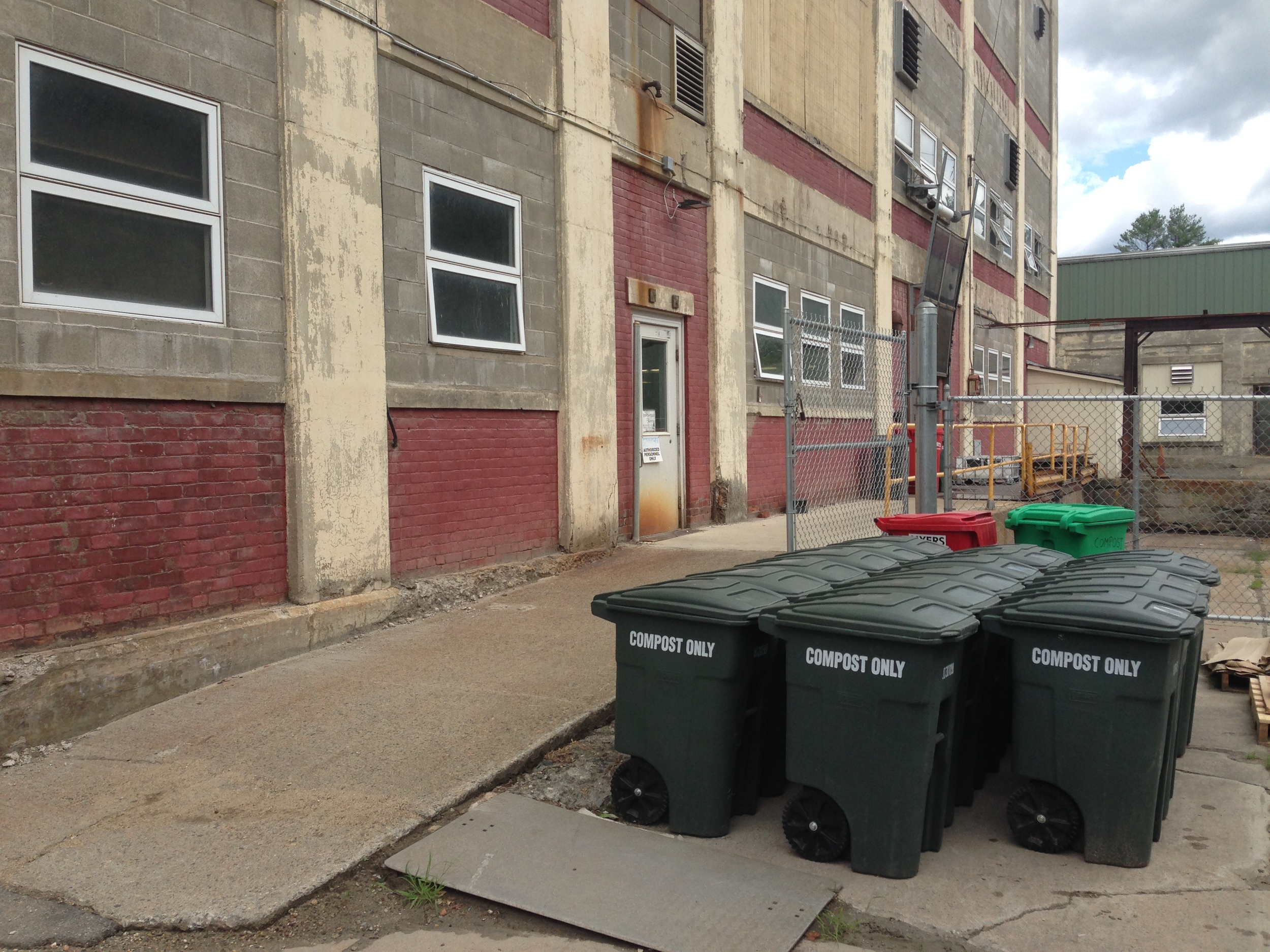Commercial Compost Collection Services
The average business and institution generates considerable amounts of discarded food. Our collection service picks up that material and puts it back into the local food system and economy, instead of sending to the landfill to get wasted and create pollution. We provide full service collection for businesses, institutions, and community recycling centers.
Black Dirt Farm offers weekly collection of food scraps from businesses and institutions in the Northeast Kingdom, Lamoille Valley, and Central Vermont.
How does it work?
Over the week our clients separate food scraps and collect them in the 48 gallon totes we provide. We accept all food scrap materials, food manufacturing wastes, and a limited number of paper products, including coffee filters, brown paper towels, napkins, cardboard egg cartons, compostable serveware and takeout containers. Each week the totes are emptied and thoroughly pressure washed with hot water. The food scraps are brought back to our farm in where they are first mixed into a forage mix for laying hens and then turned into compost and High Potency Worm Castings; or brought to our partners at Tamarlane Farm in Lyndonville and Lamoille Soil in Johnson, where they are transformed into rich compost.
We provide
Rugged, 48-gallon totes (as many as you need at no additional cost) with good lids and wheels
Weekly collection and cleaning of totes
Sawdust to cap & seal the tote against odors and pests
Employee training
Instructional signage & stickers
Resource recovery & pollution prevention statistics in every invoice
Rates
Cut your trash costs and contact us for a quote!
What happens to the food scraps?
Food scraps from Greensboro, Hardwick, and our Lamoille Valley collection route are brought to Black Dirt Farm in Stannard where our hens get first pick. The hens forage on pasture, food scraps, and the fungi and grubs found in the compost piles. This rich environment mimics the hens native jungle feeding strategy, even in winter. The food scraps are tipped into the hens feeding pen, which is layered with dry carbon materials. As the pen fills up it is emptied and the mix of carbon, food scraps, and manure is formed into large windrows which heat up from all the microbial activity. This process is called thermophilic composting, and it ensures that weed seeds, diseases and pathogens are killed. At this point, some of this partially broken down compost is diverted as feed for our Red Wiggler Worms who make our High Potency Worm Castings. The remainder is slowly broken down by communities of insects, bacteria, and fungi over the better part of year.
Whether you are a restaurant, a food processor, a hospital, a ski resort or a school, composting your food scraps is an easy and inexpensive way for your business or institution to go green! In this video, see what business owners and employees have to say about separating food scraps in their businesses.
Resources for our Clients
Download communication materials, links to food scrap-related legislation, vist our Resource page here >
Get started with our service!
Call us to discuss your needs and how our collection service works
Set up a walk-through of your business where we develop a plan for organics management on site. Review our Service Agreement.
We deliver the collection totes and communication materials
Organize a staff training
Start collecting food scraps!
What does the compost service look like?
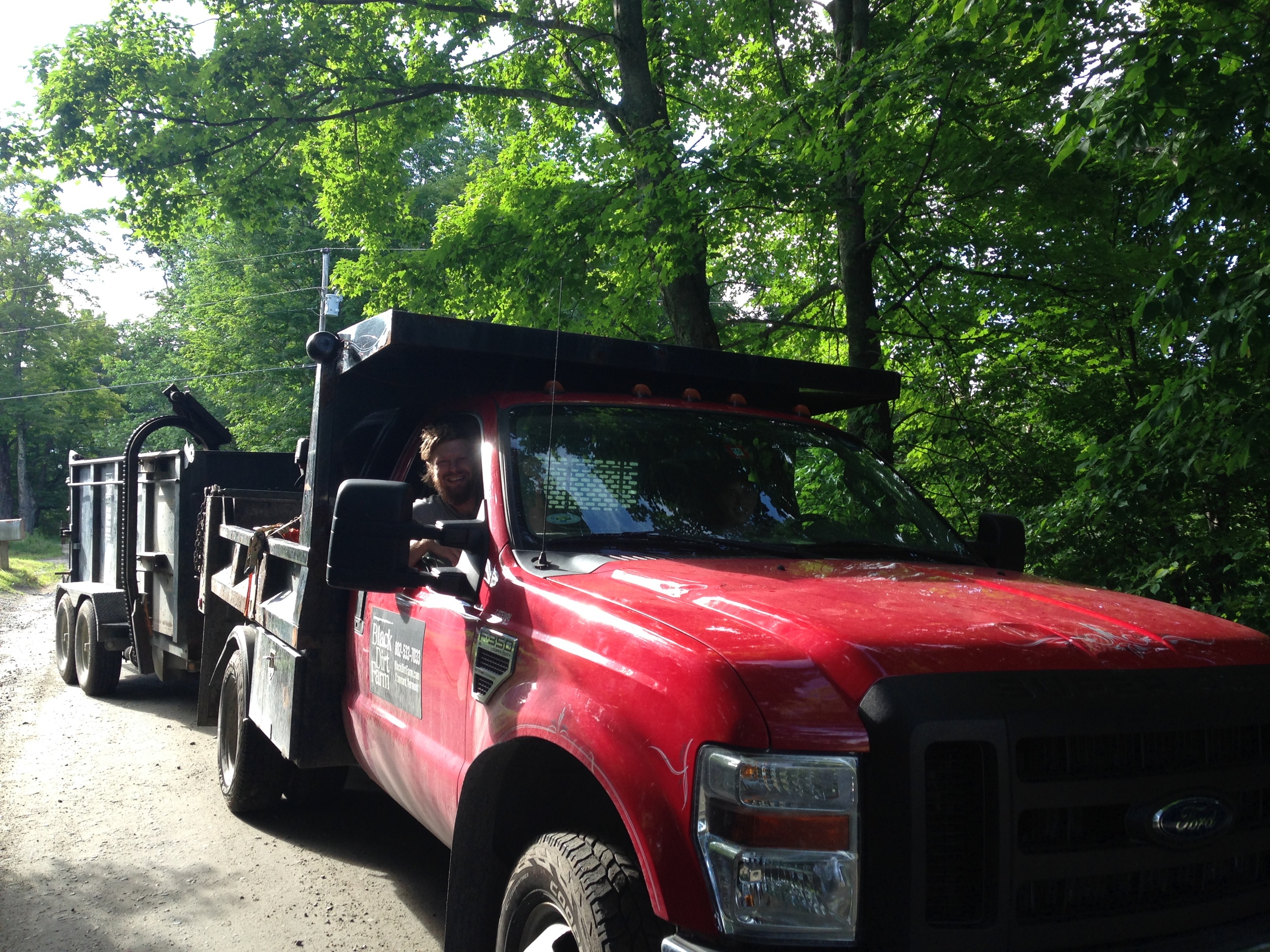

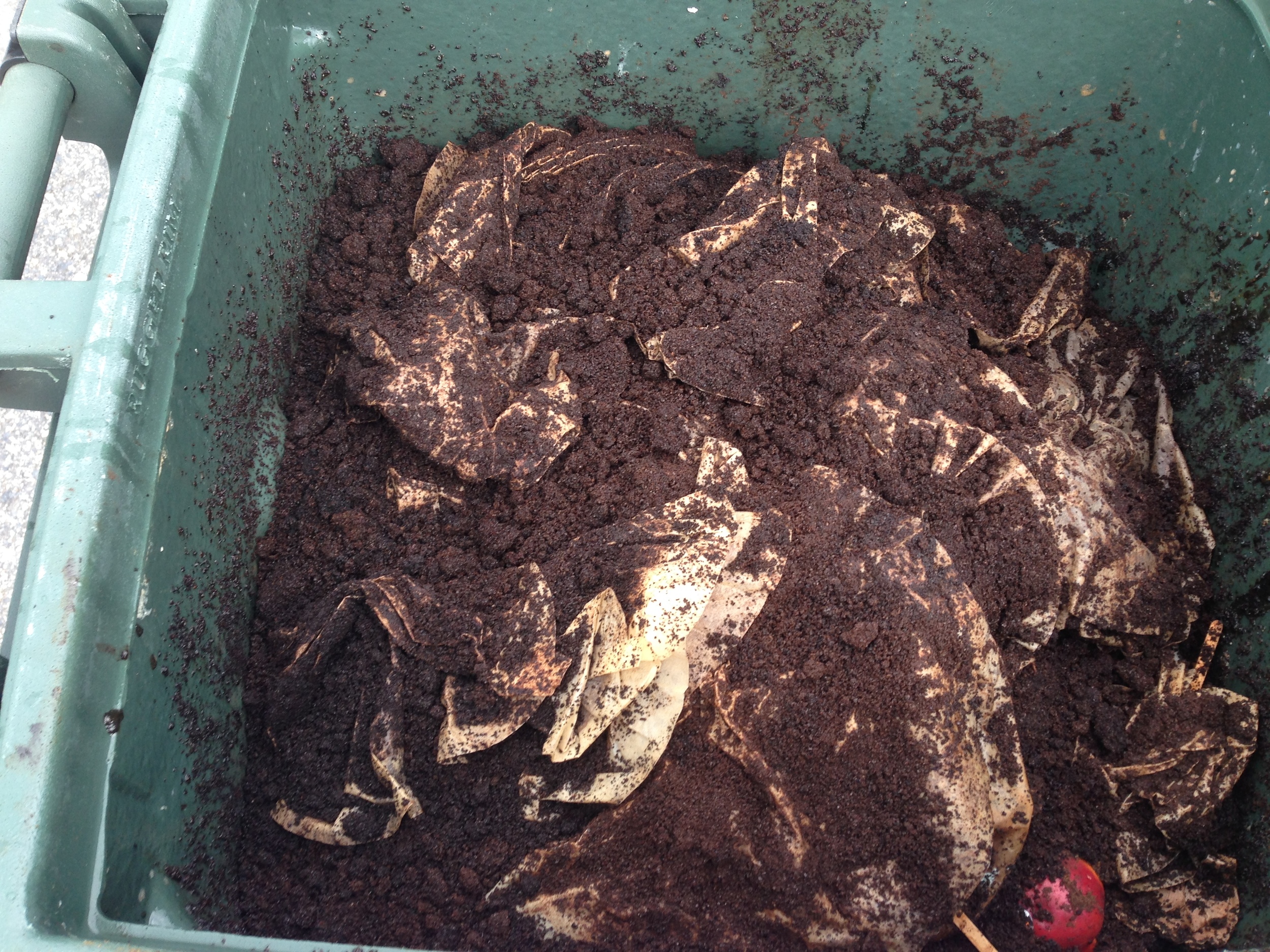
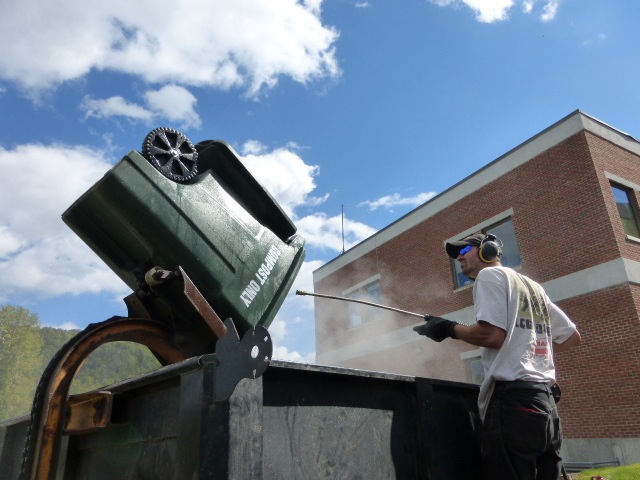
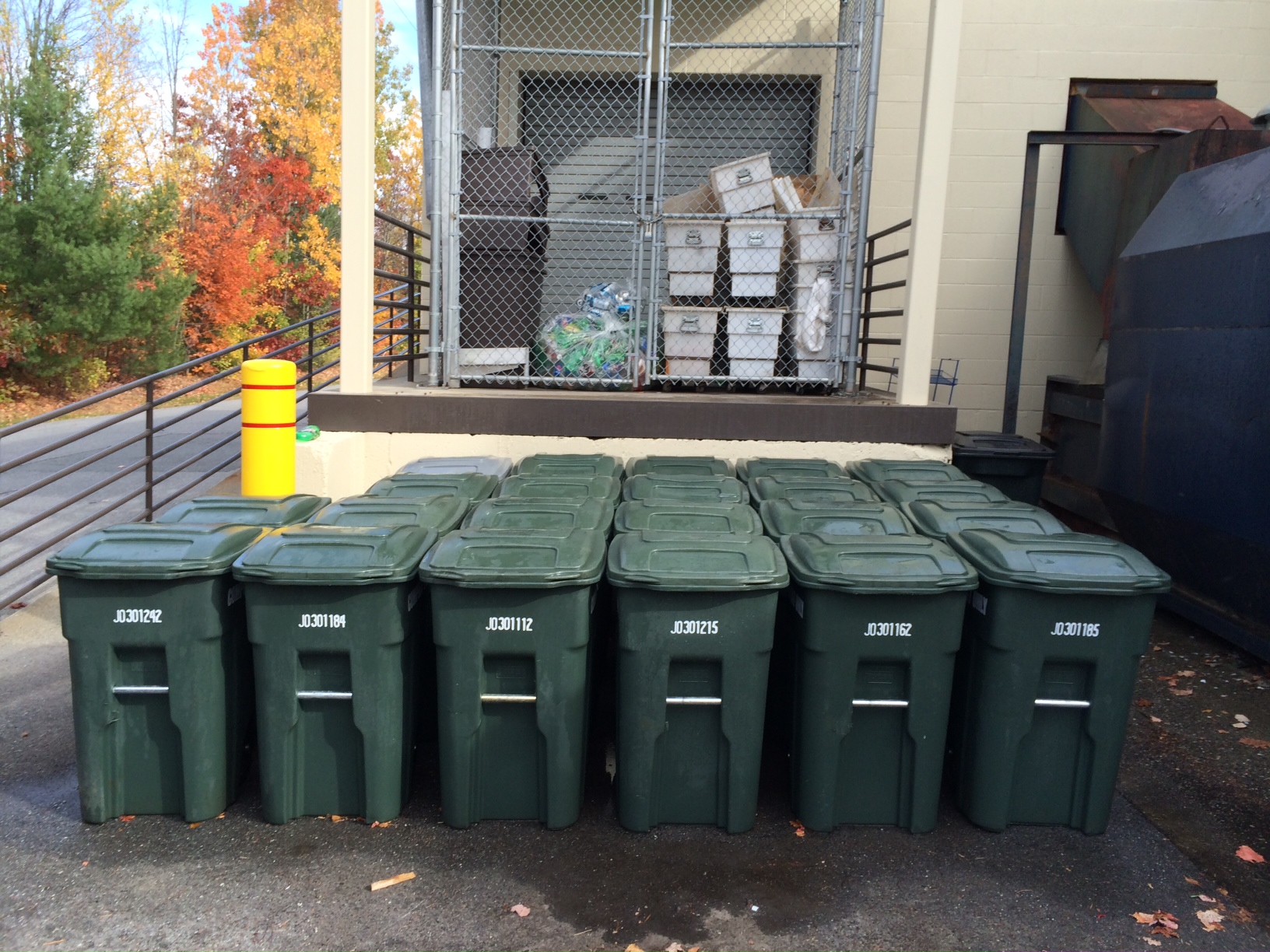
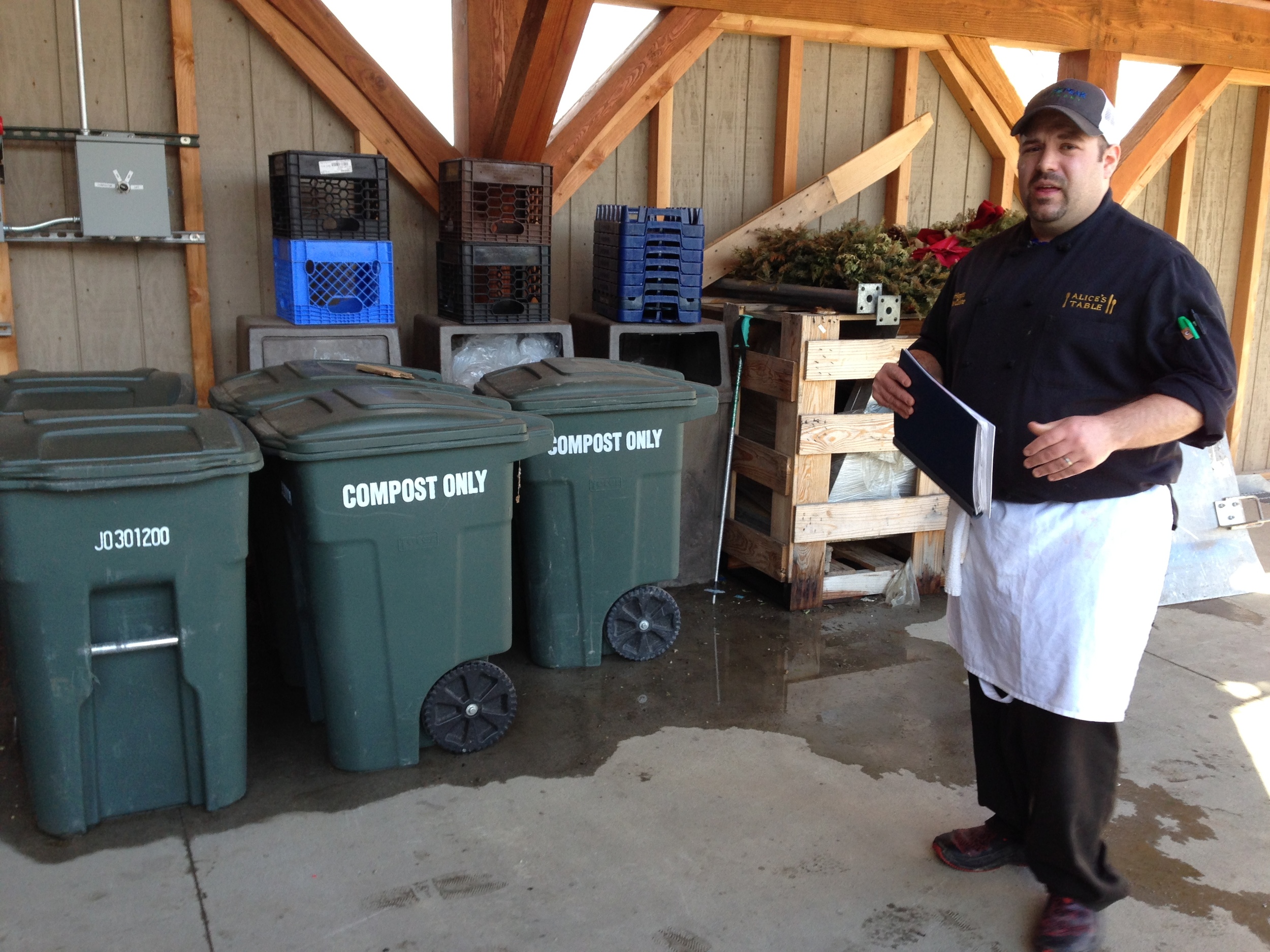
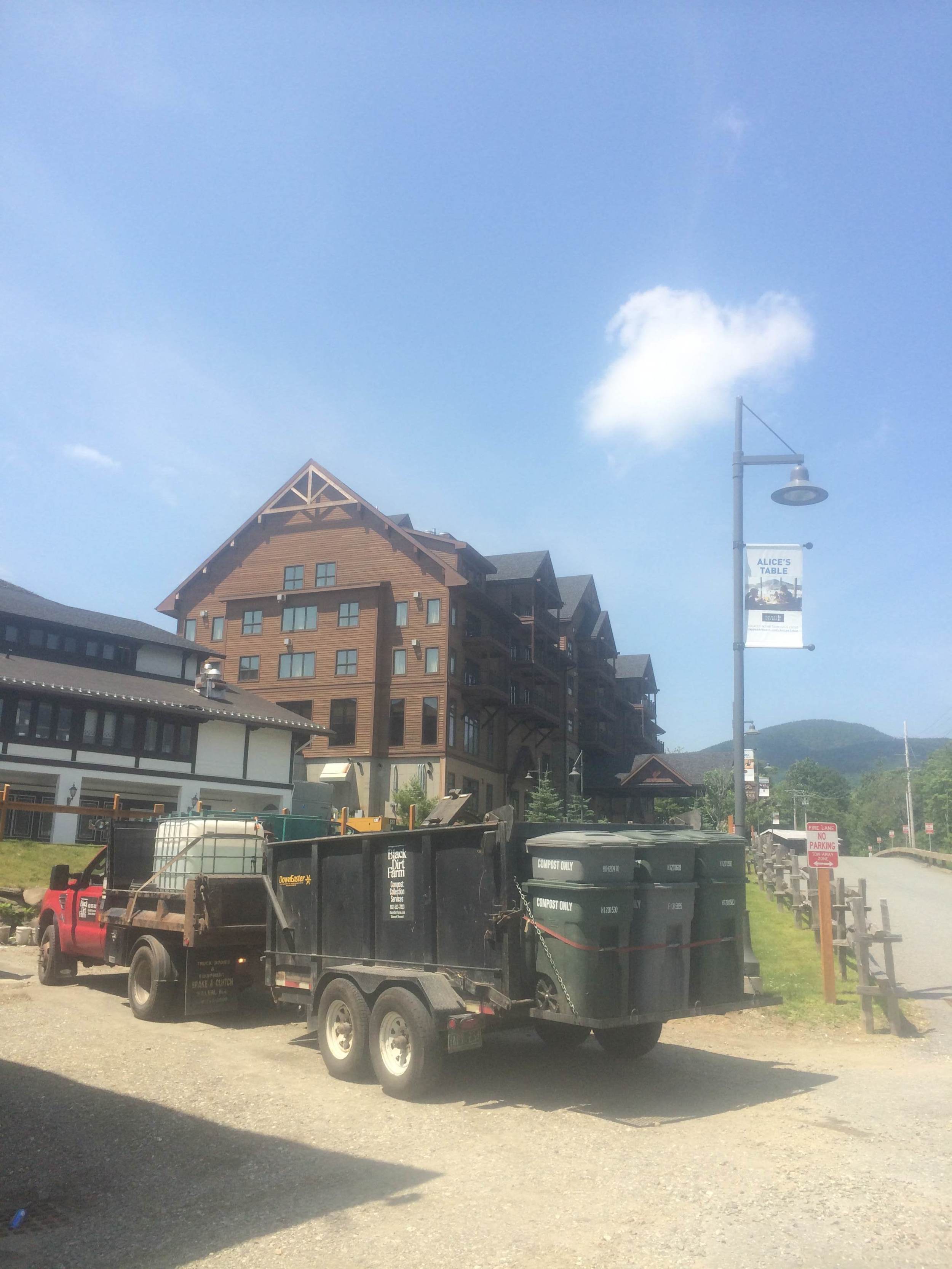
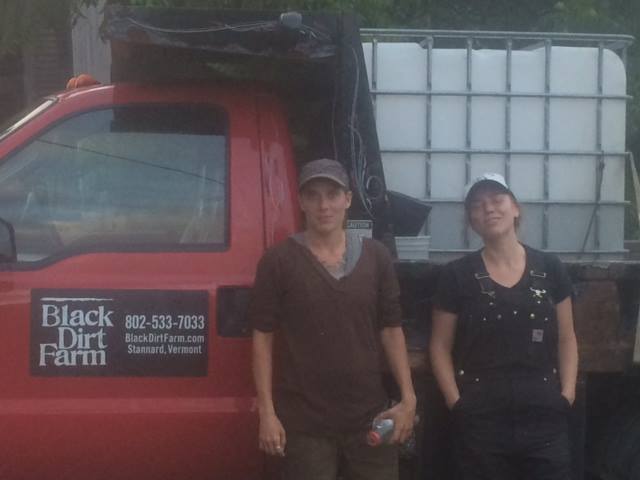
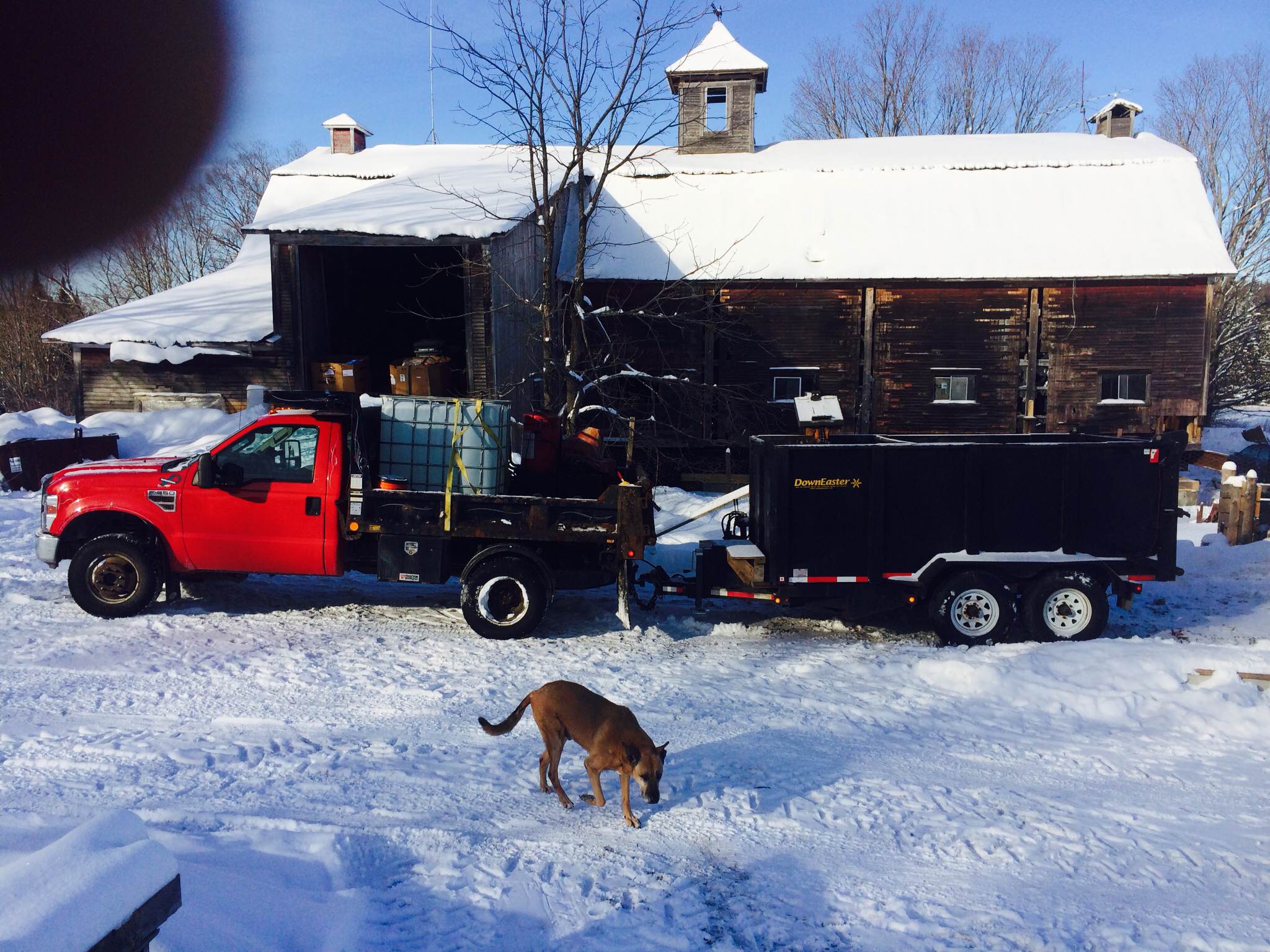
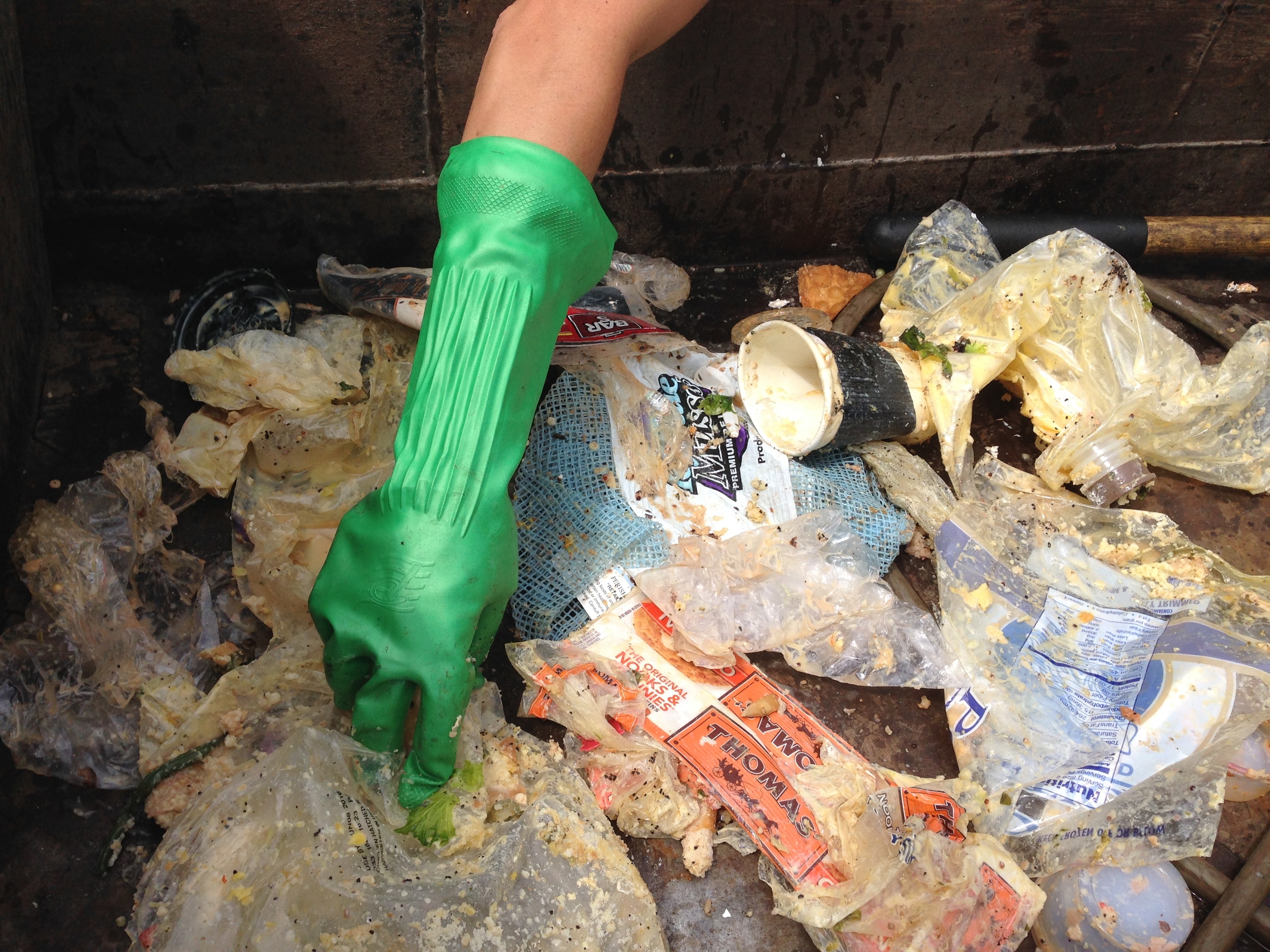
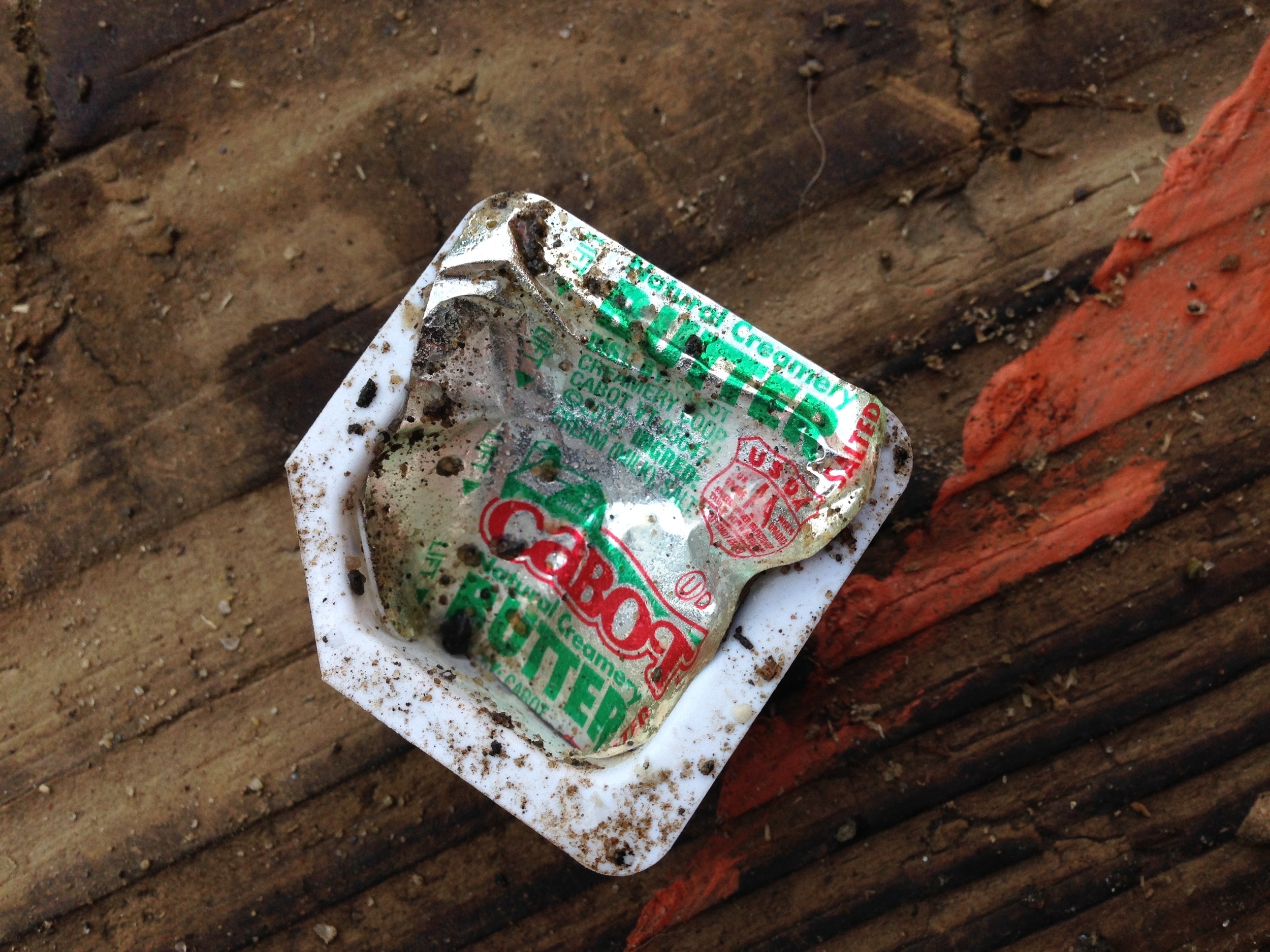
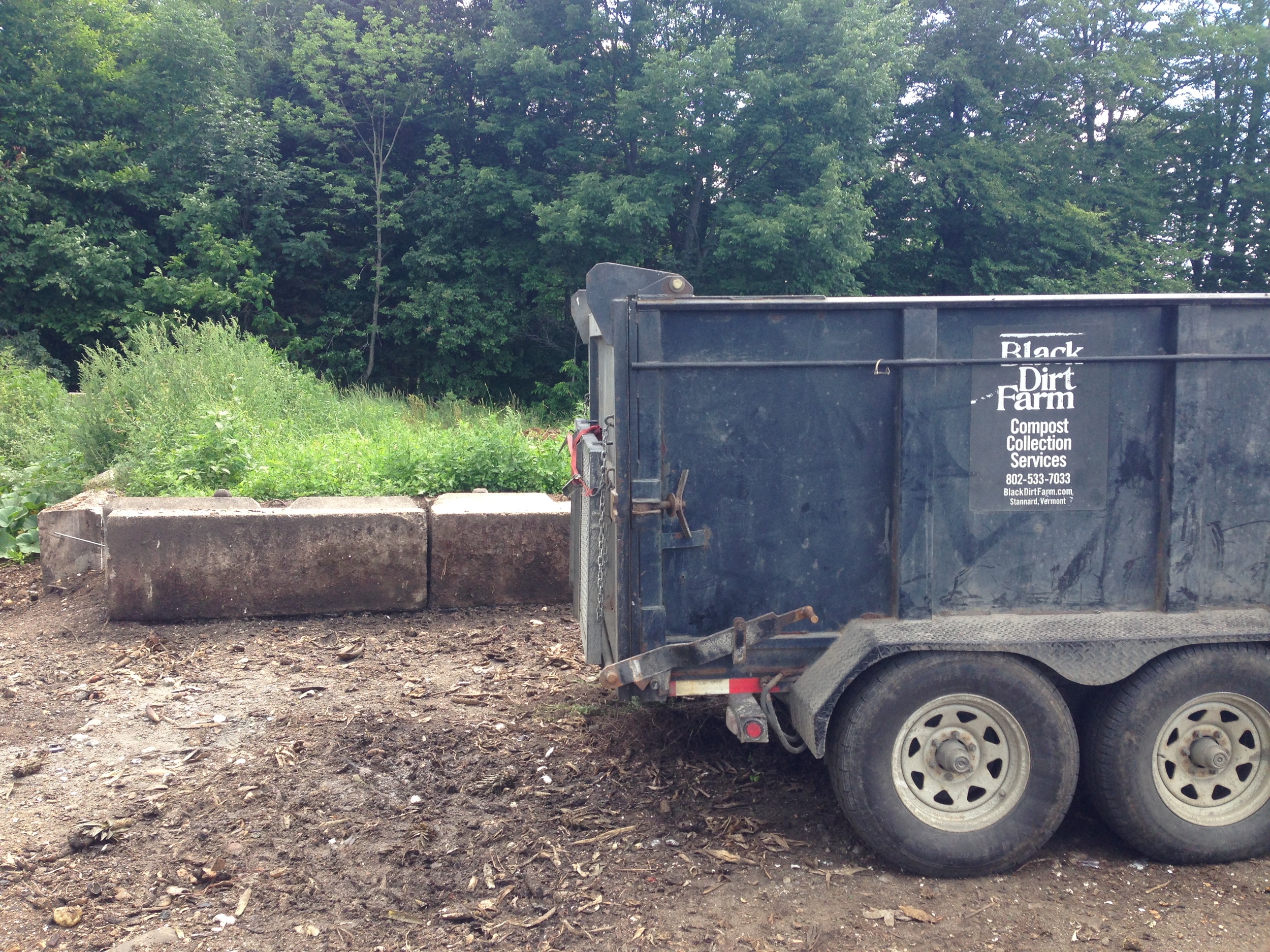
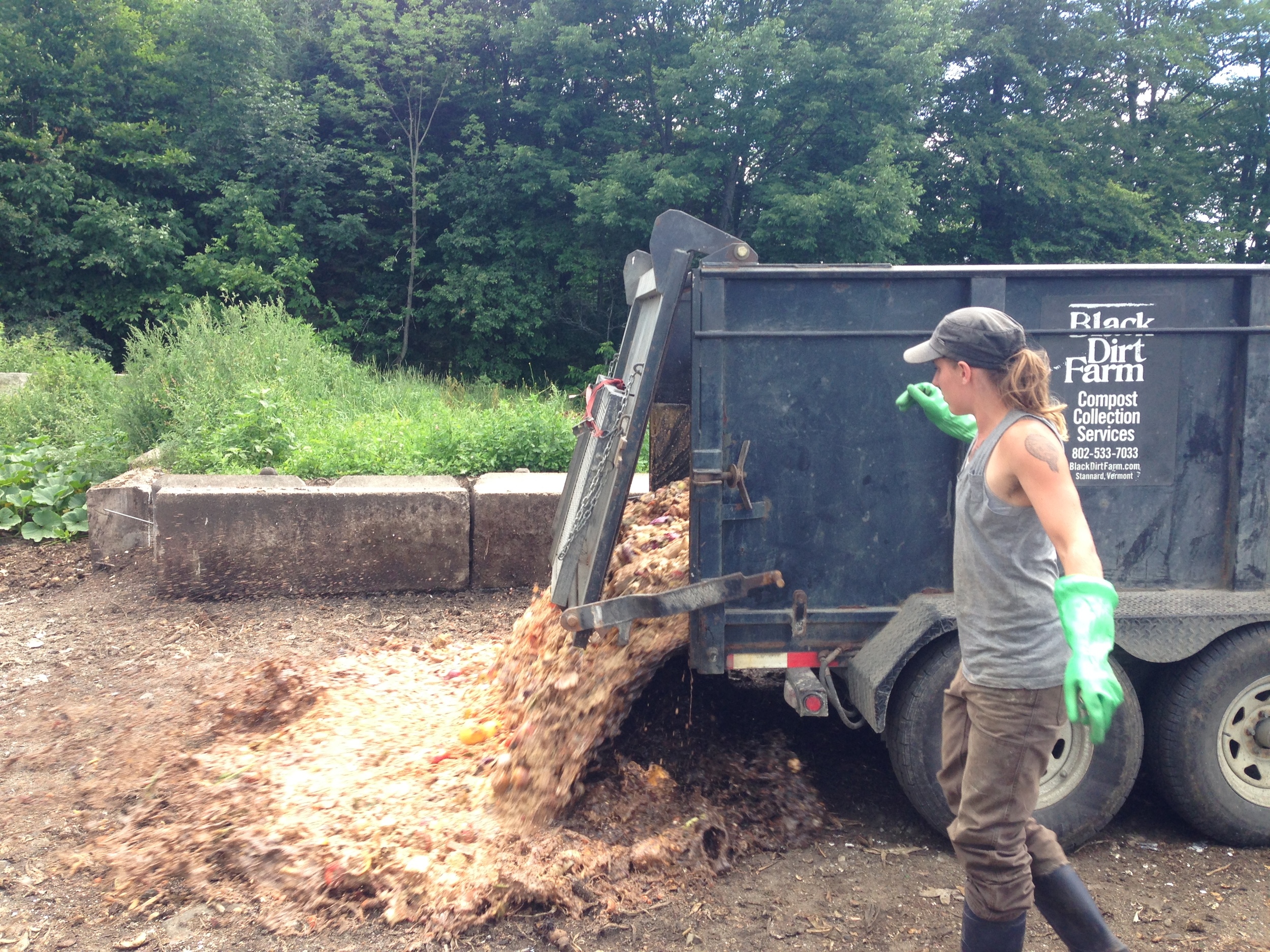
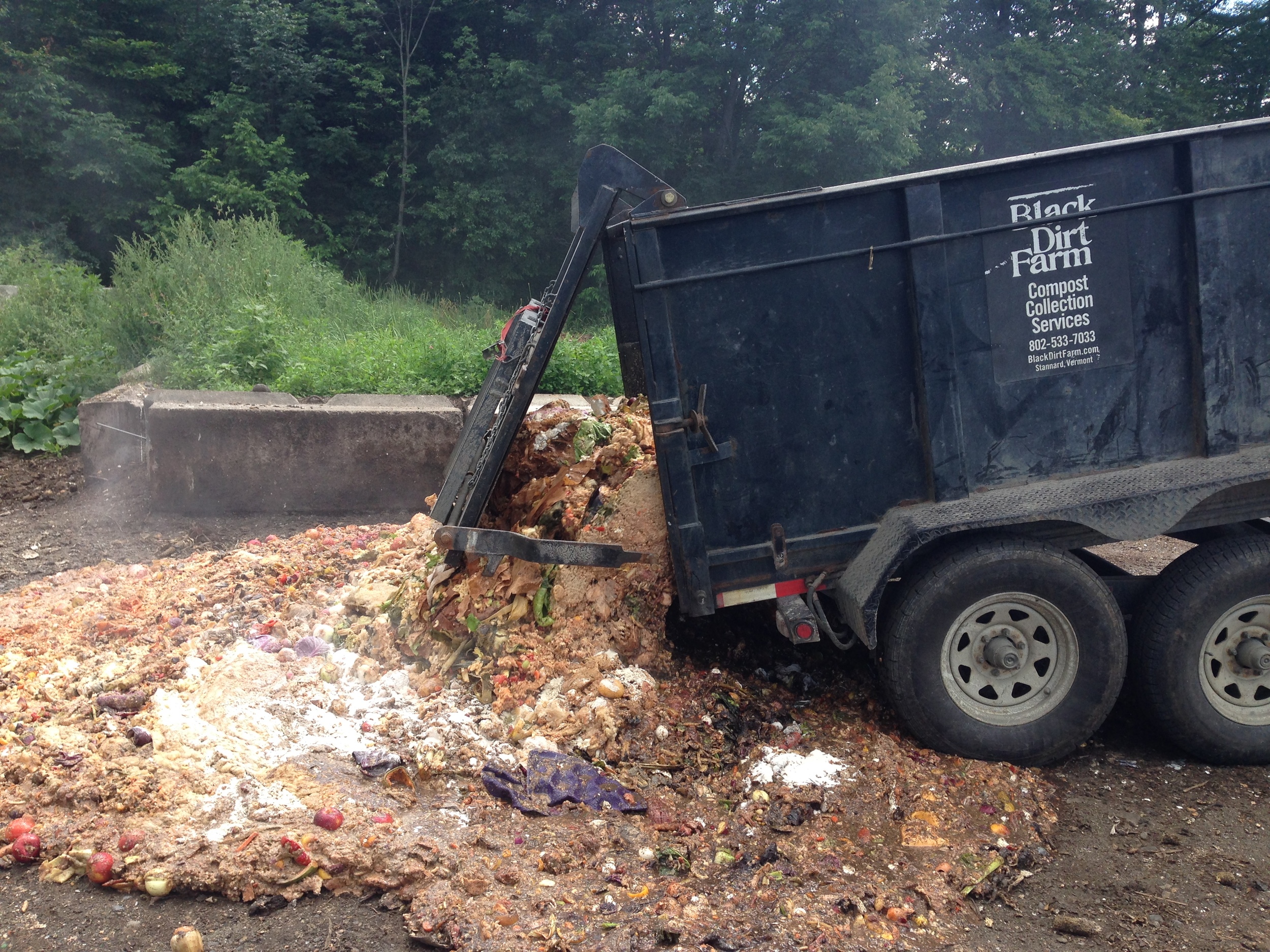
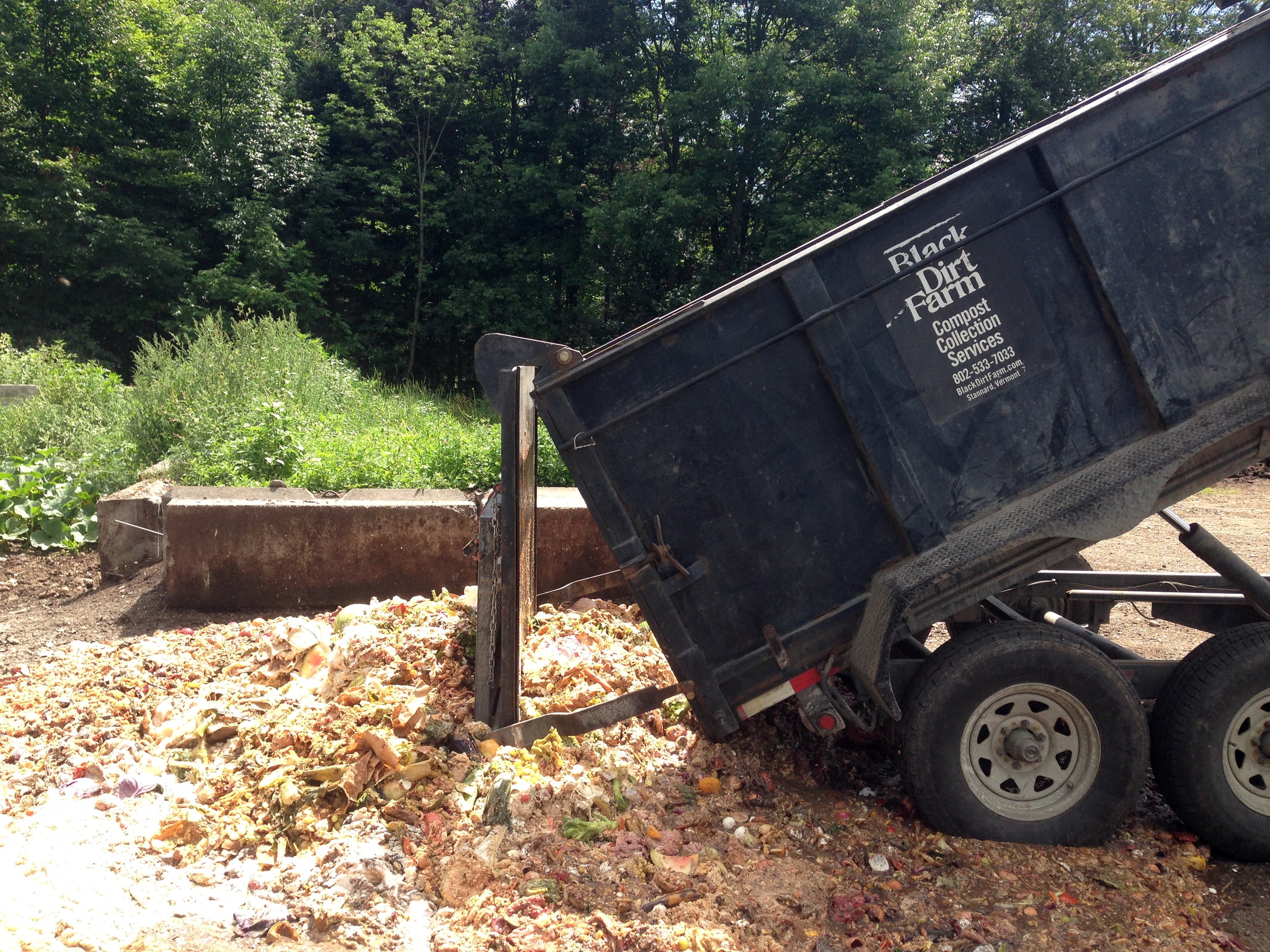
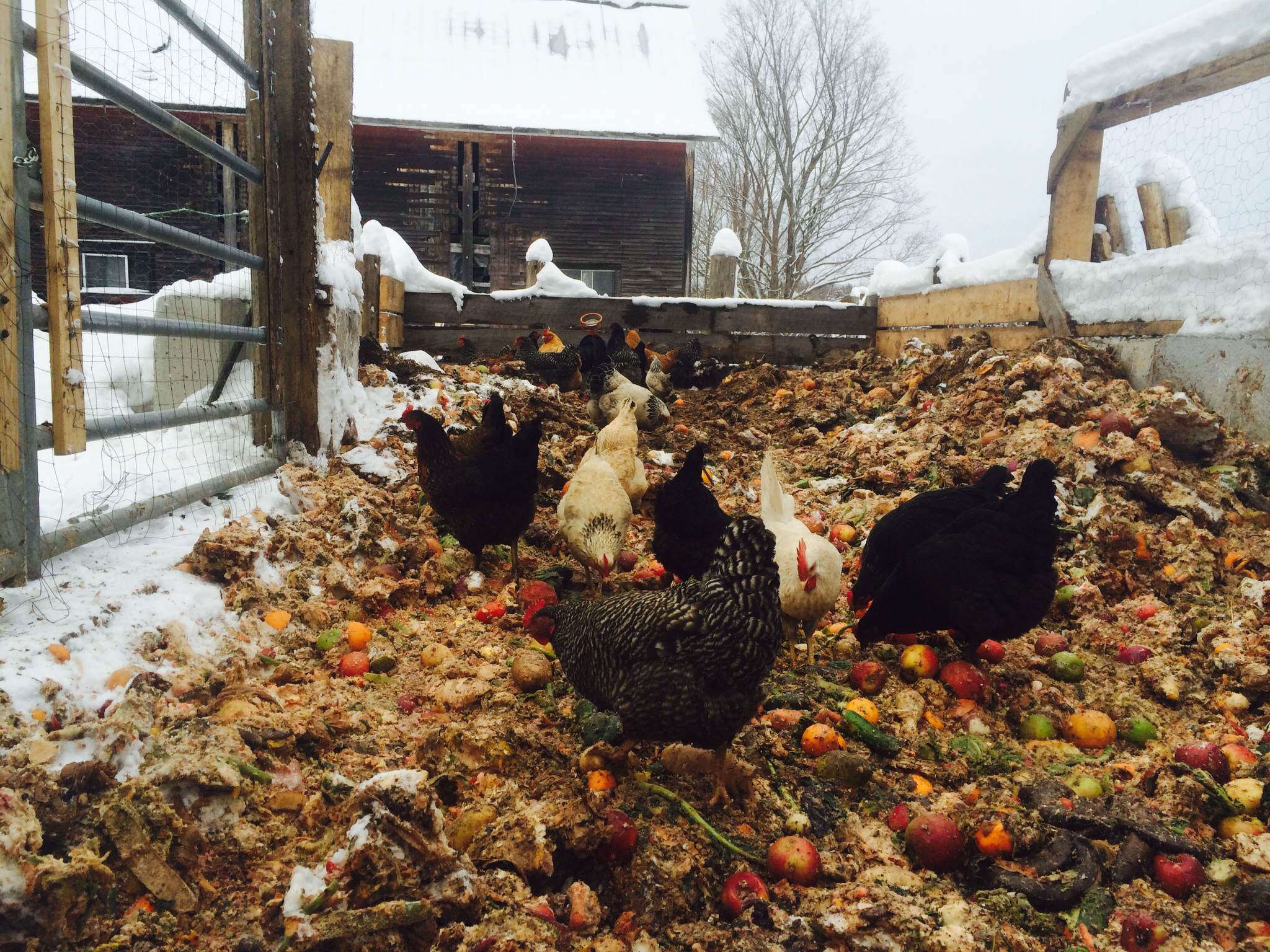
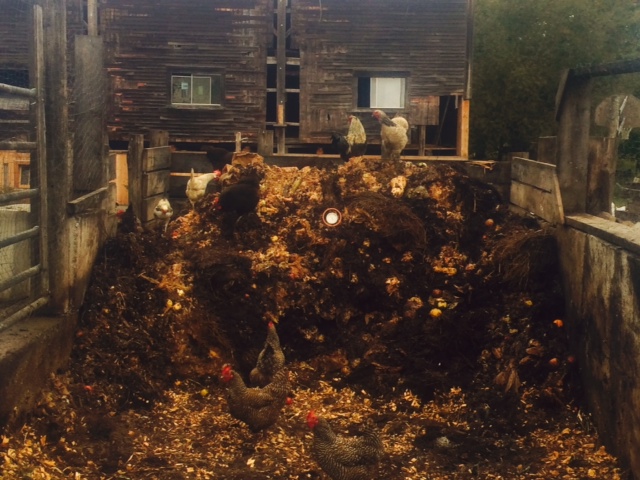
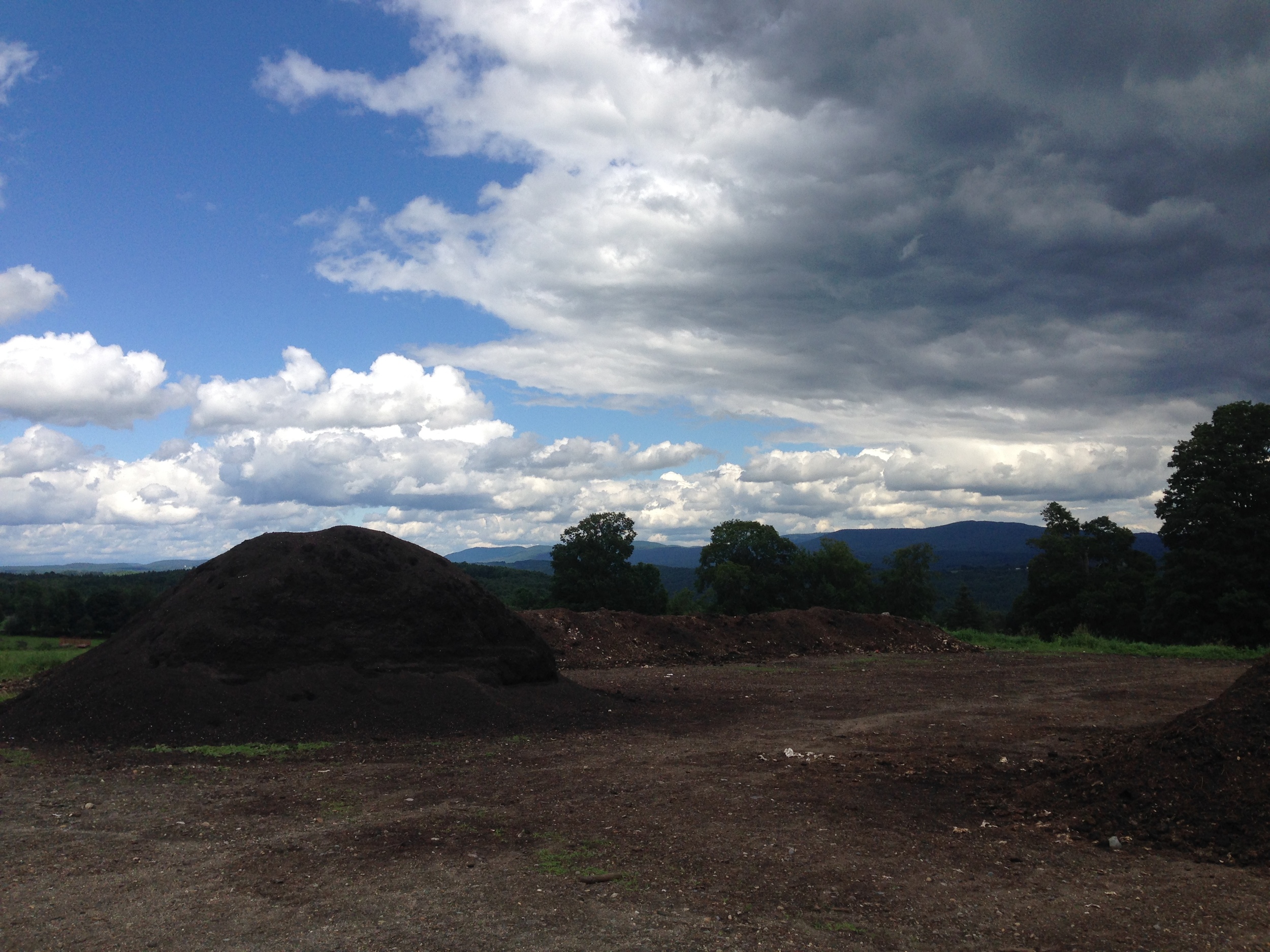
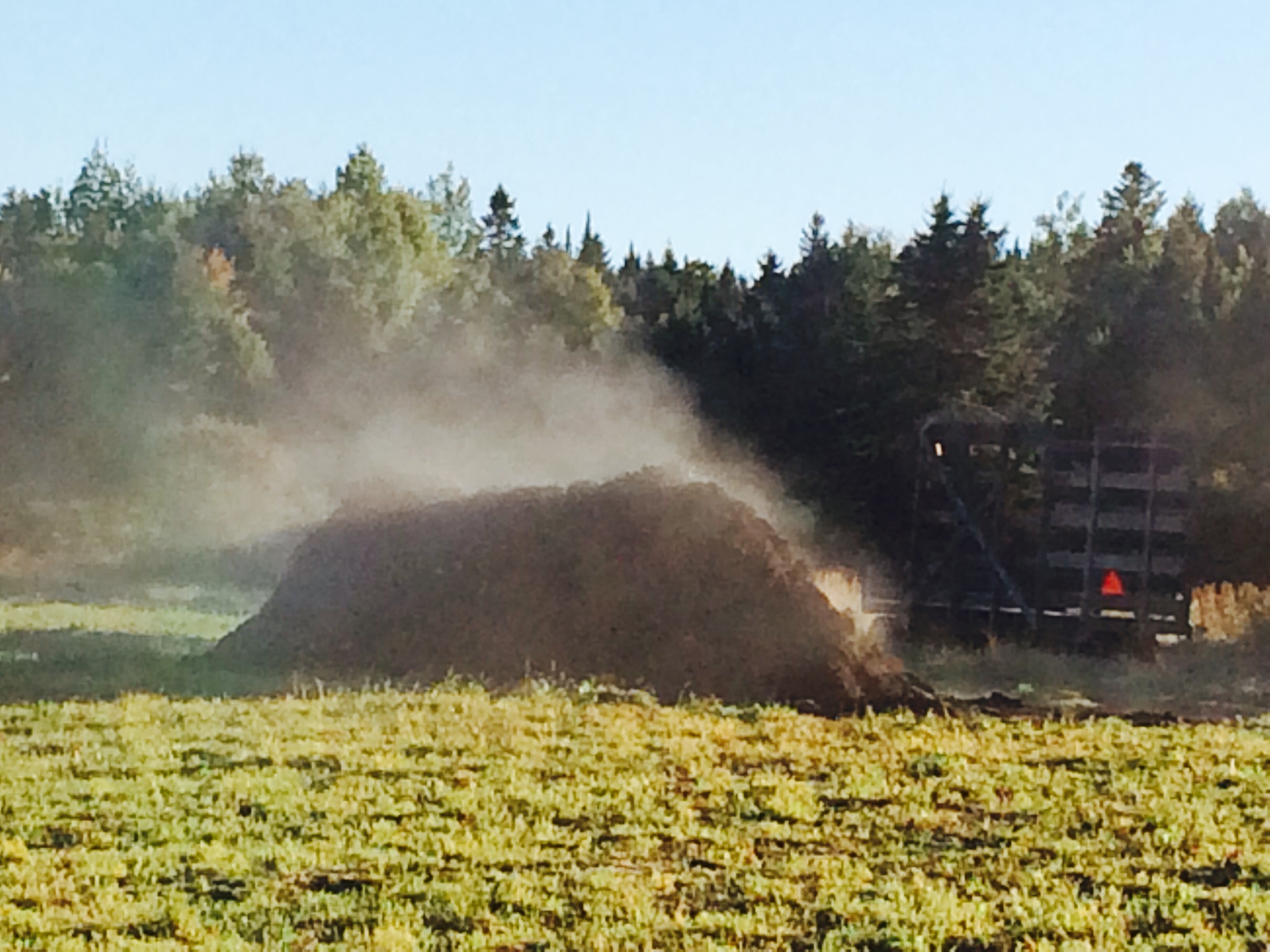
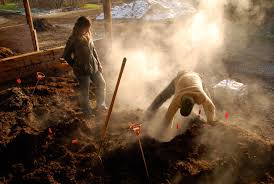
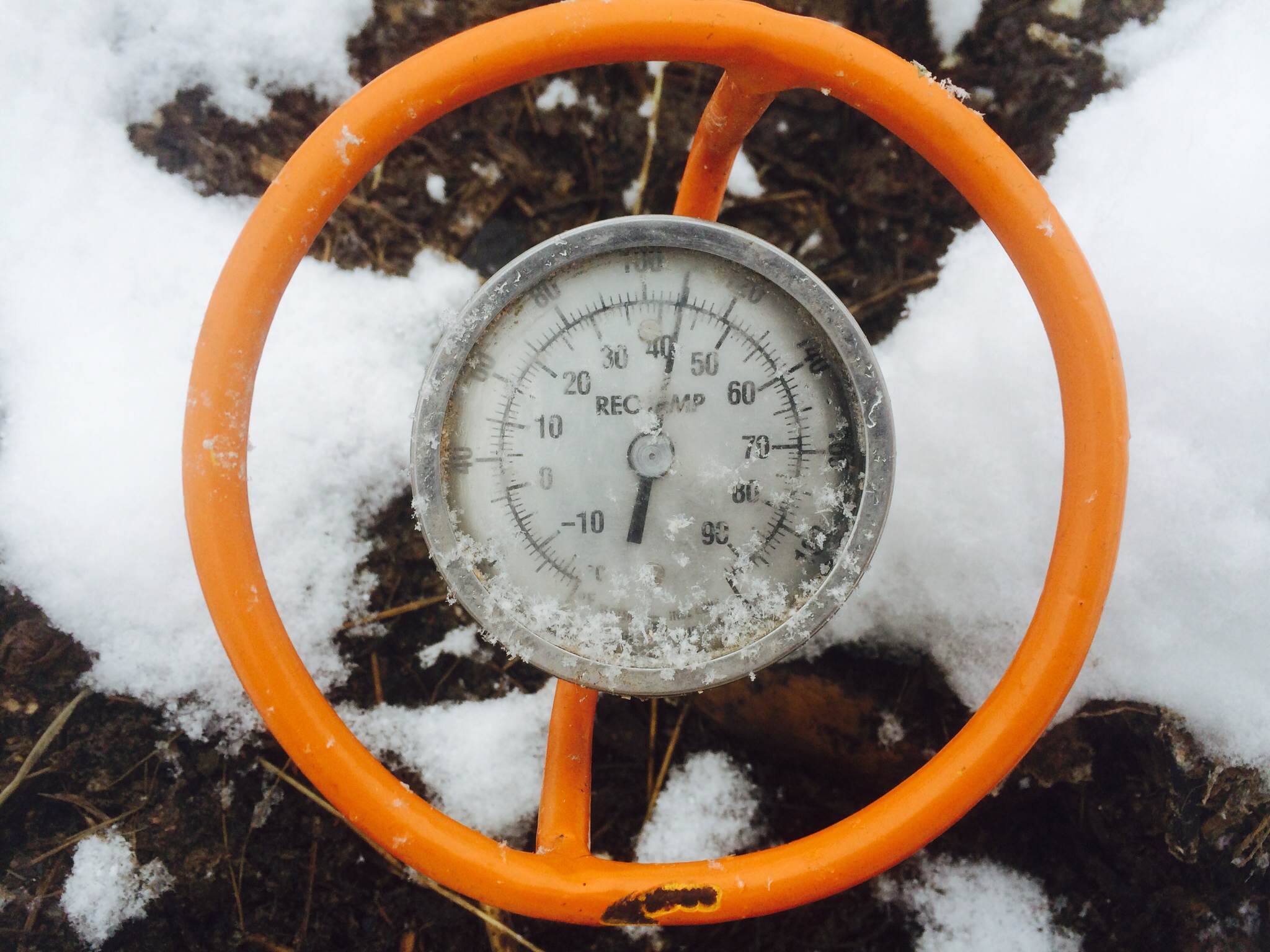
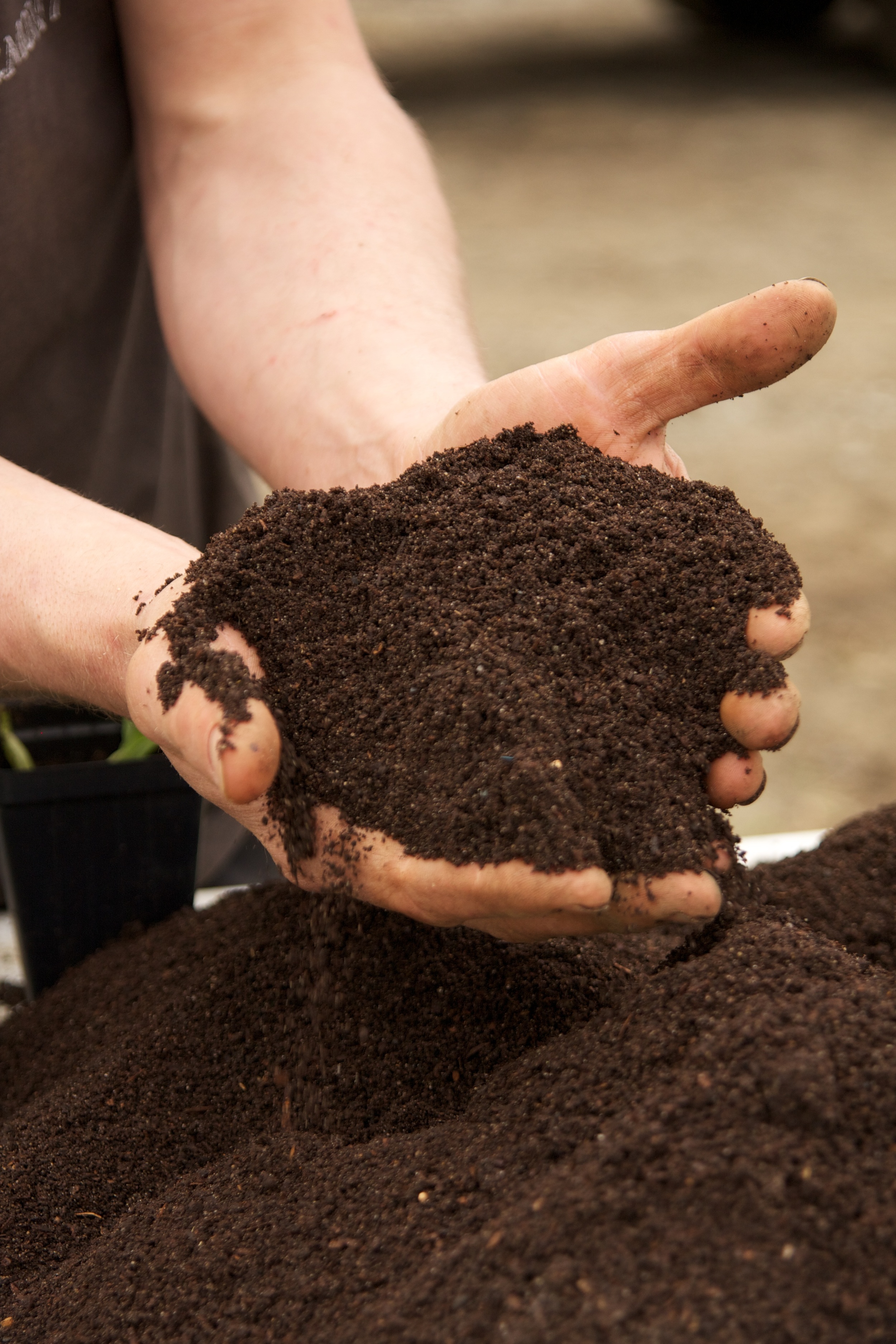
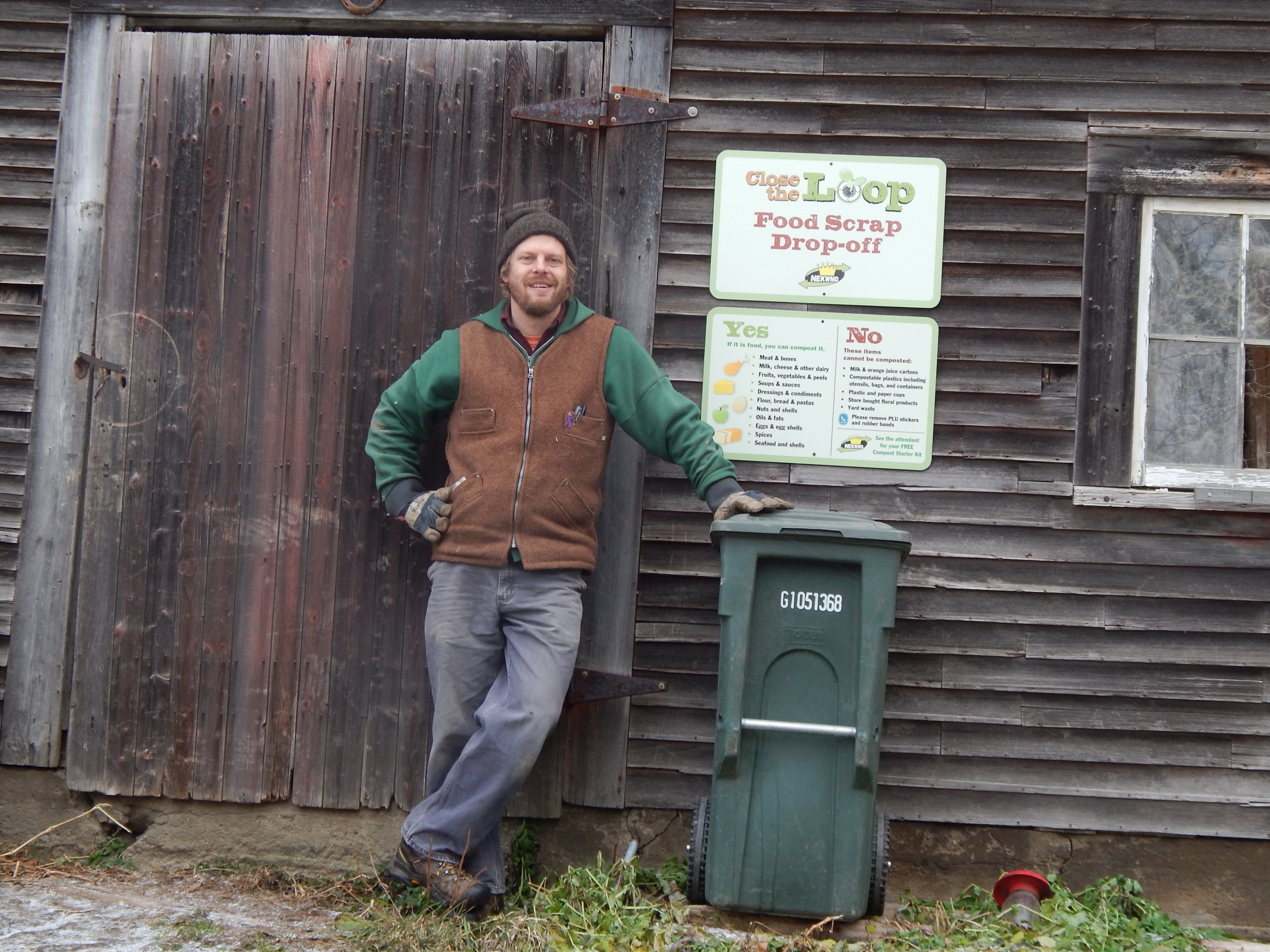
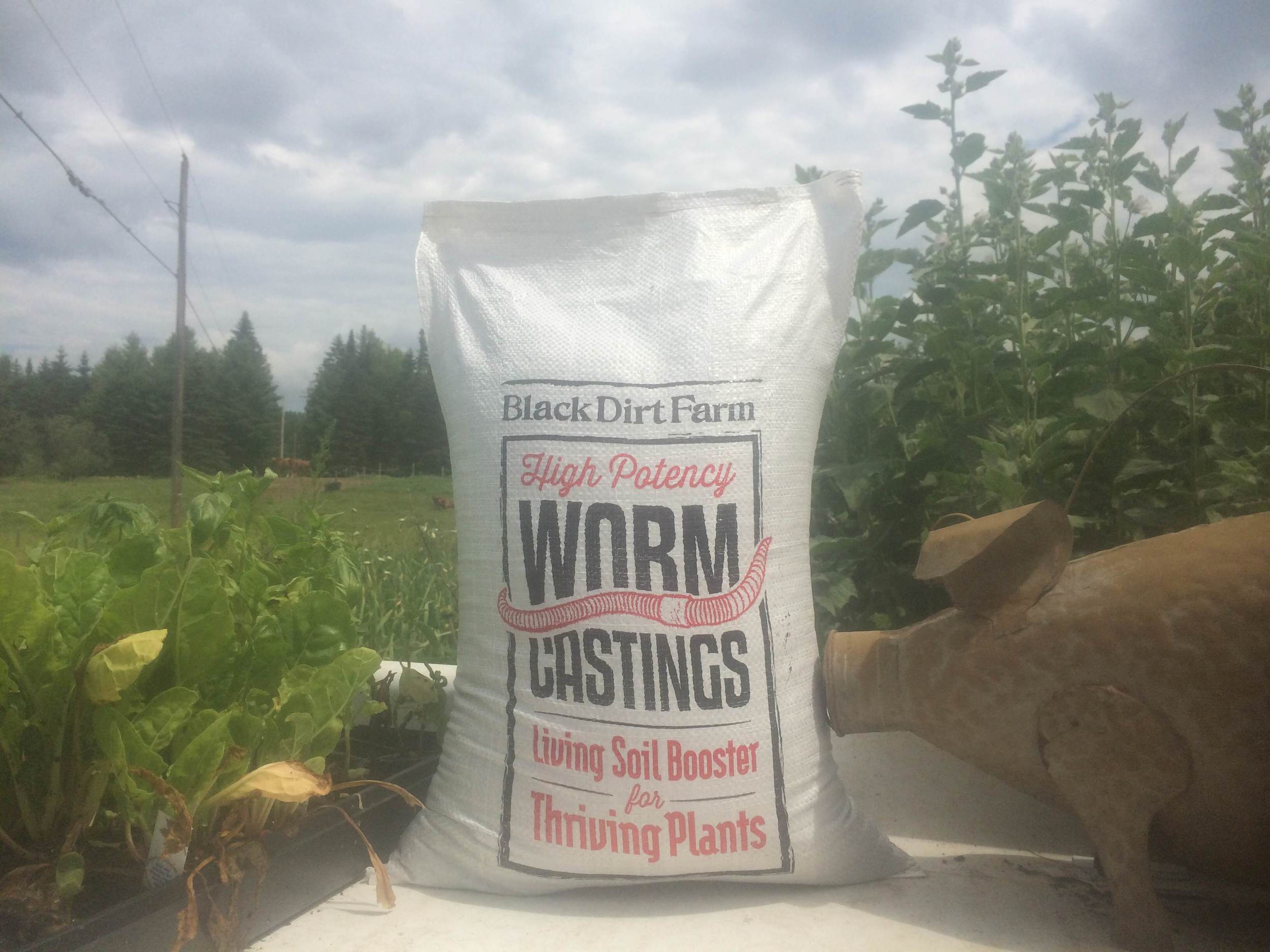
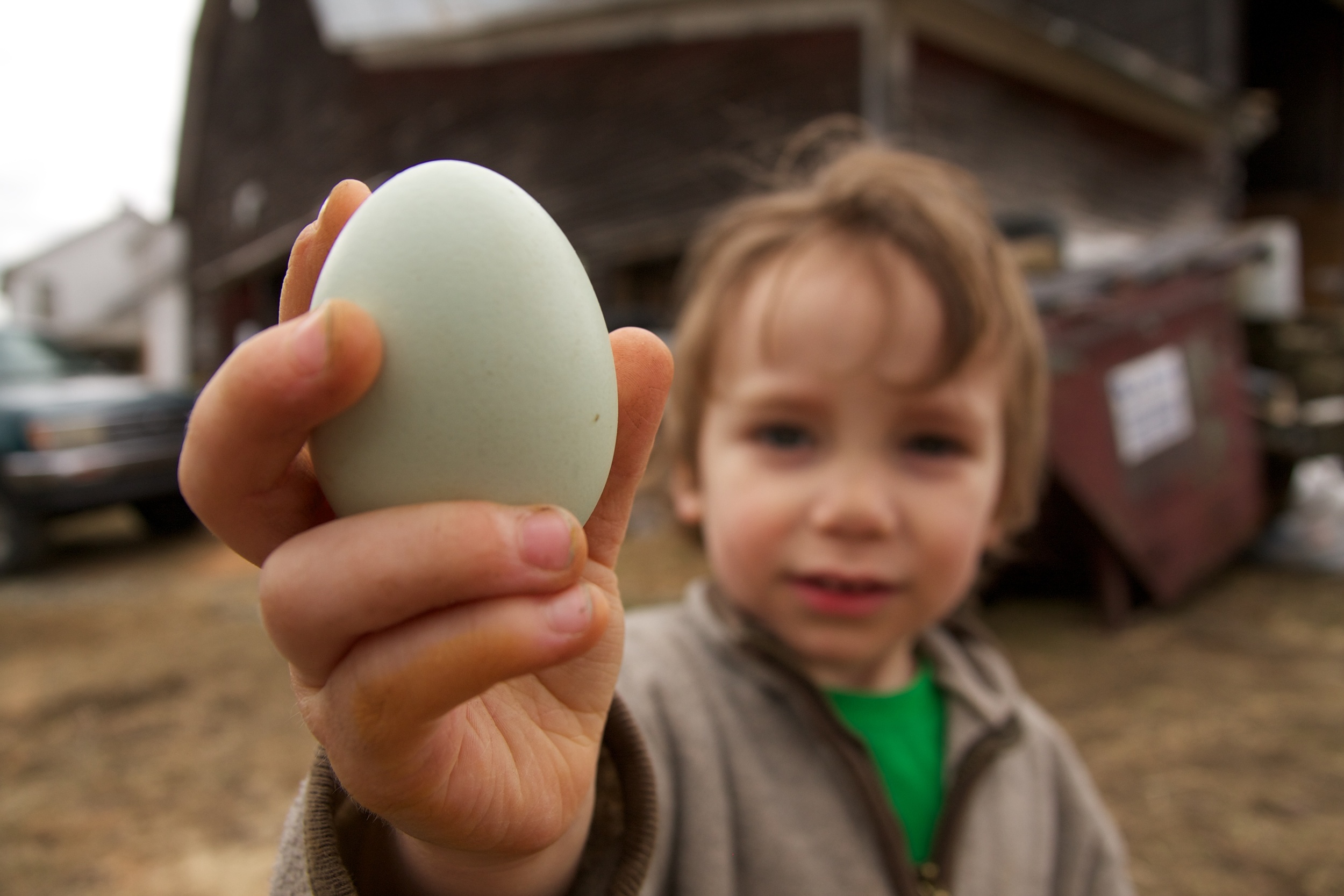
Benefits of Composting
Reduce waste food scraps make up to 50% of the waste stream
Reduce greenhouse gas emissions from landfills and fertilizer manufacturing and transport
Improve soil and water Compost replenishes topsoil and protects our waterways
Improve food security Vermont’s food scraps can provide fertility to grow 17,000 acres of vegetables
Support the local economy Composting is a local activity creating jobs in the green economy

